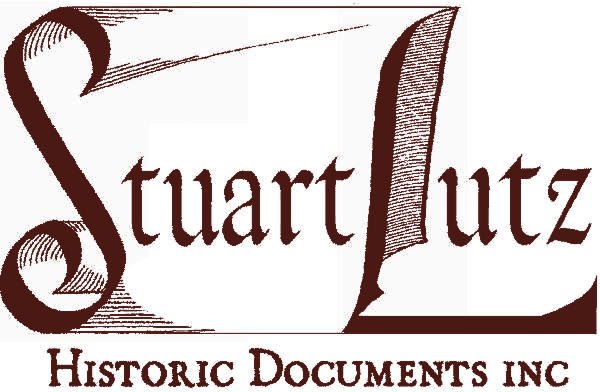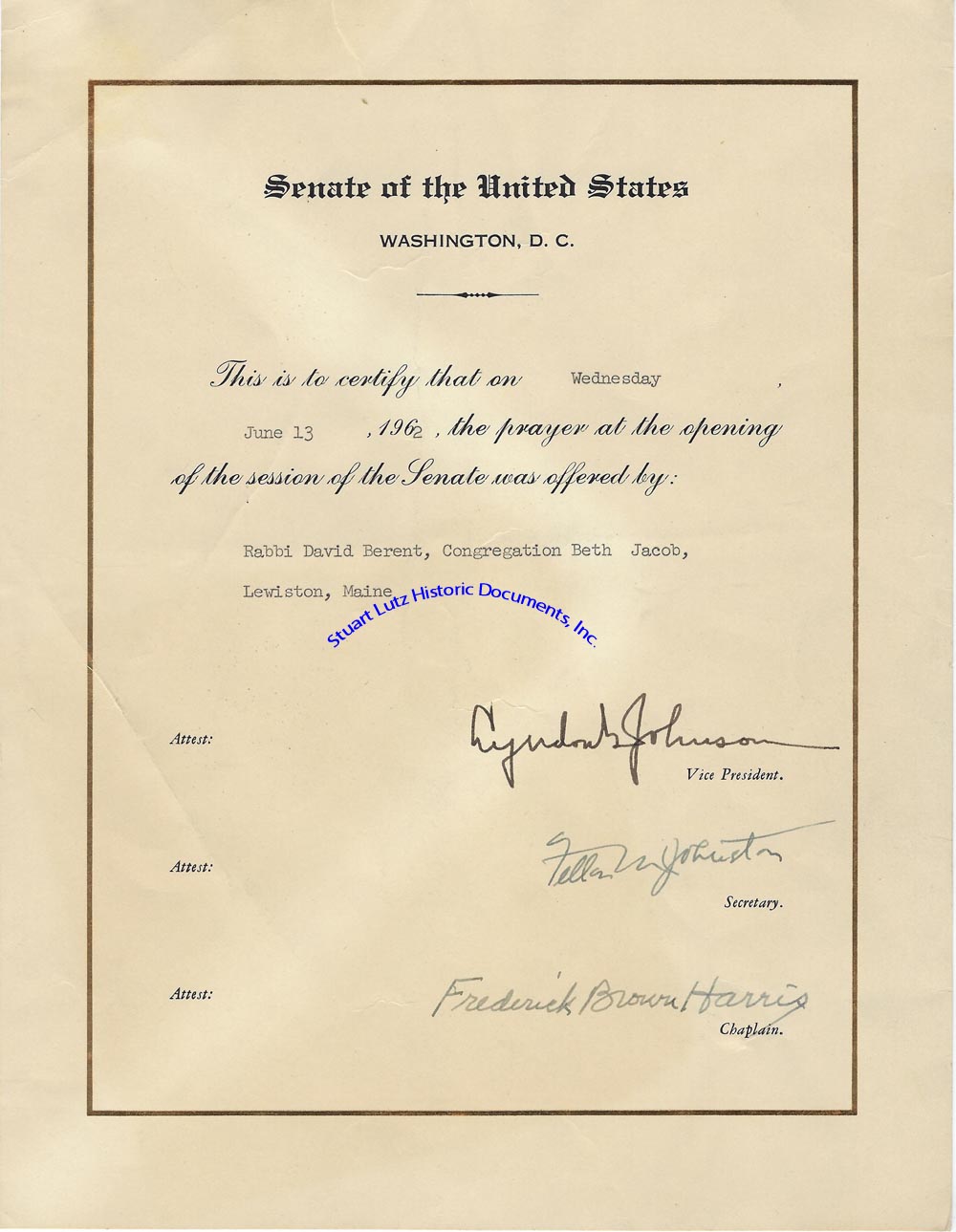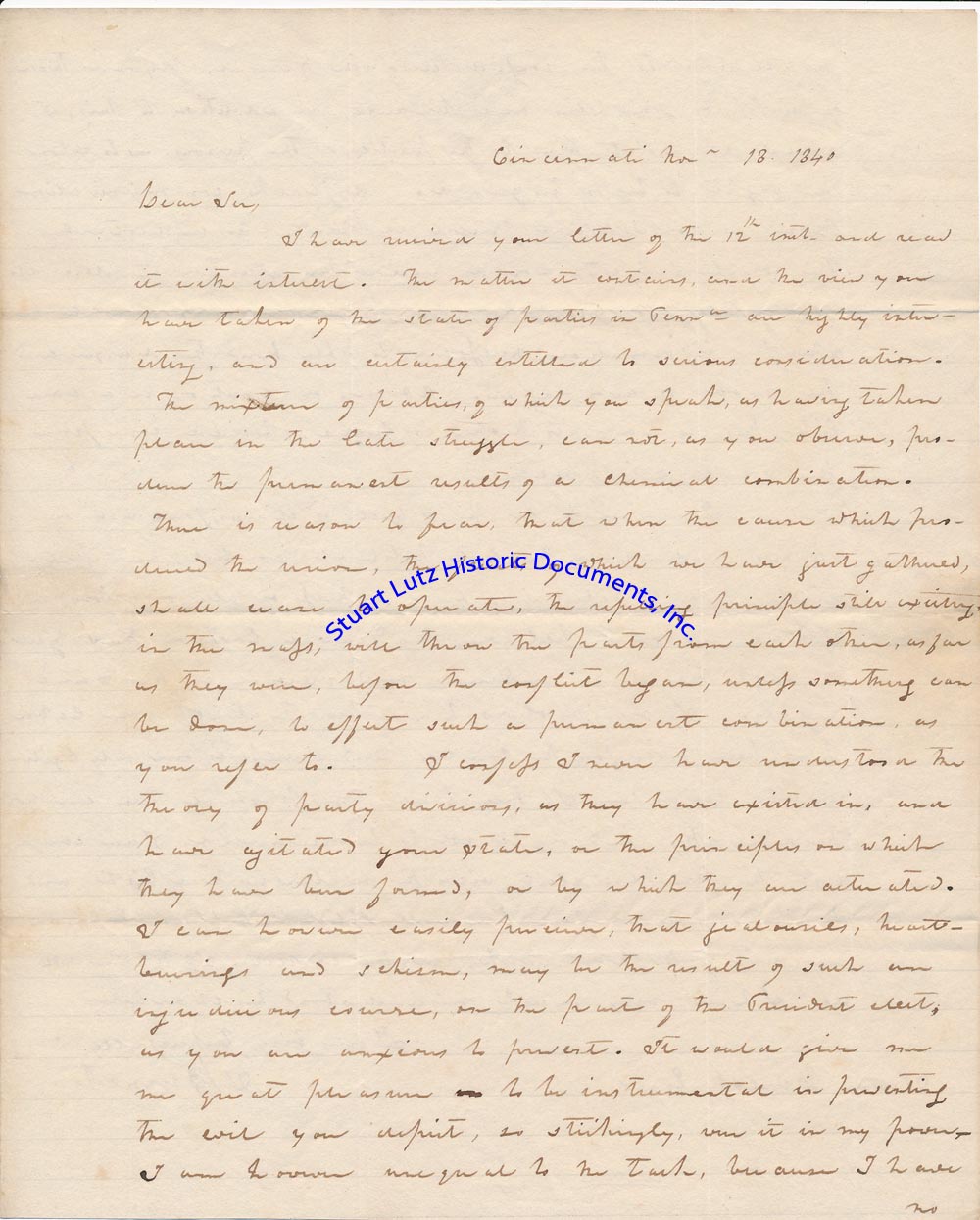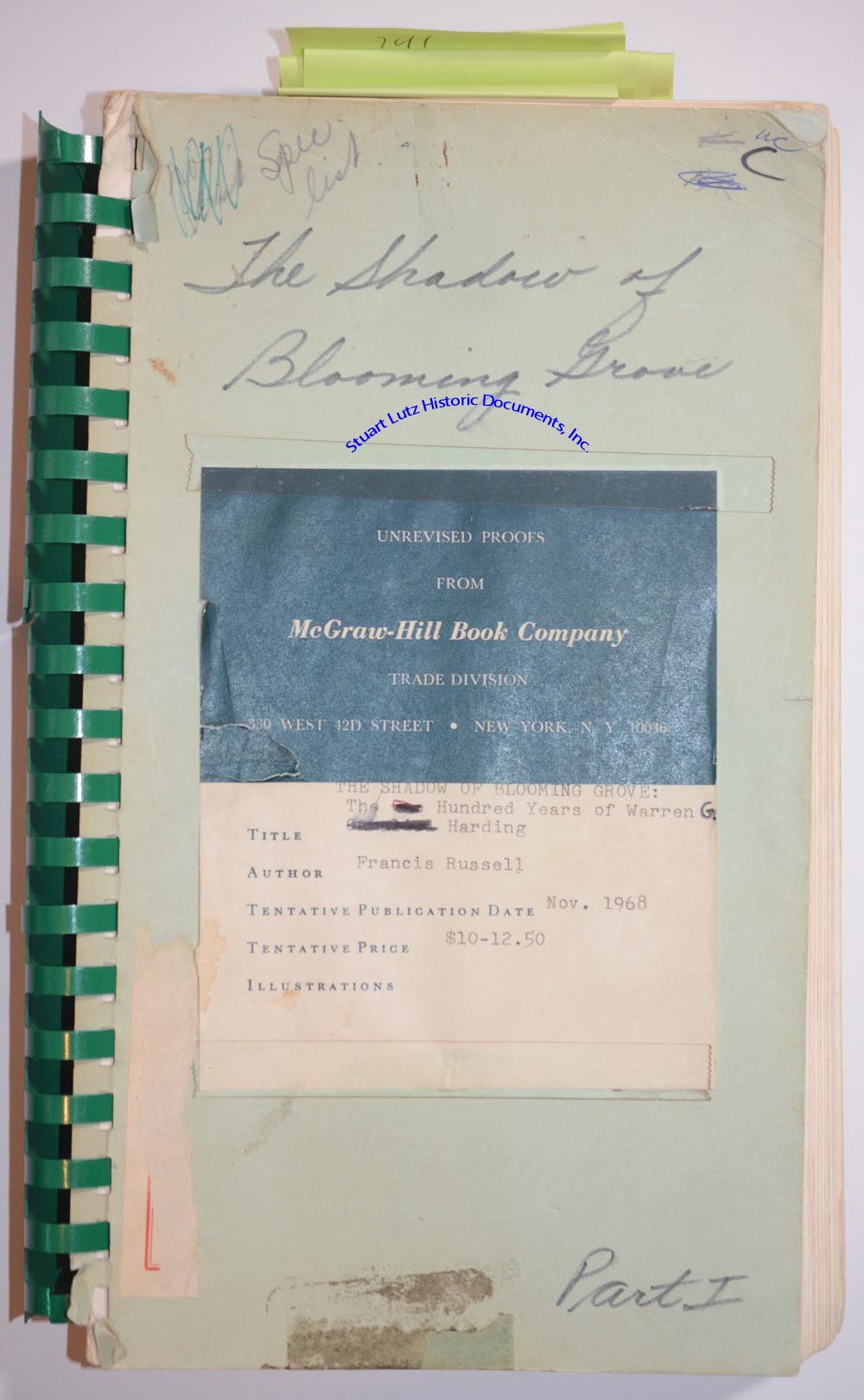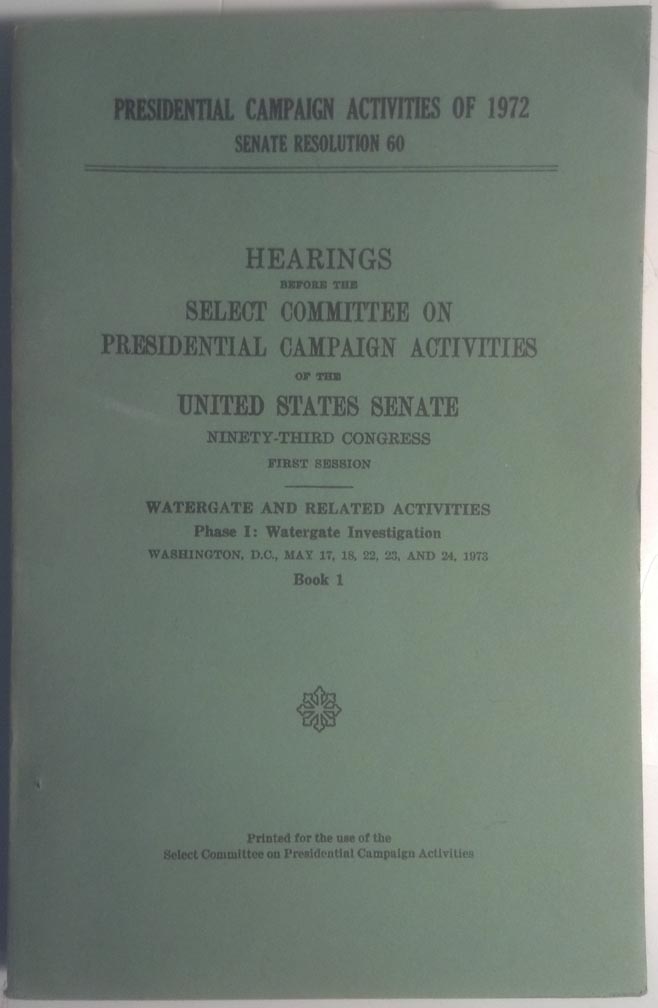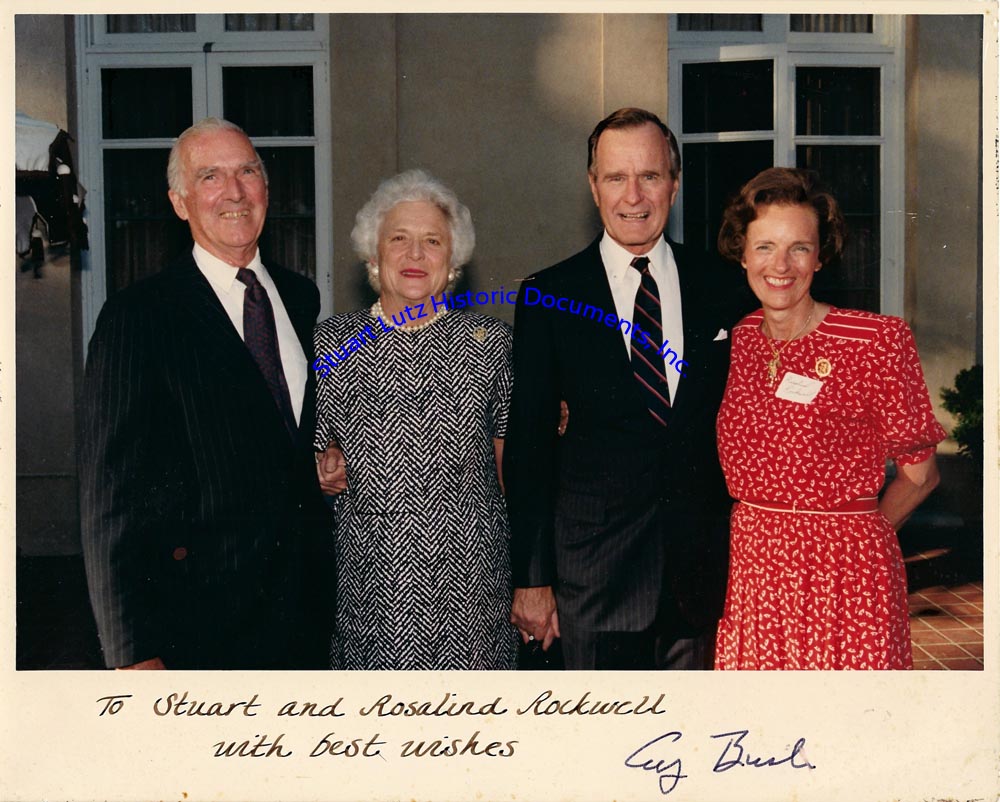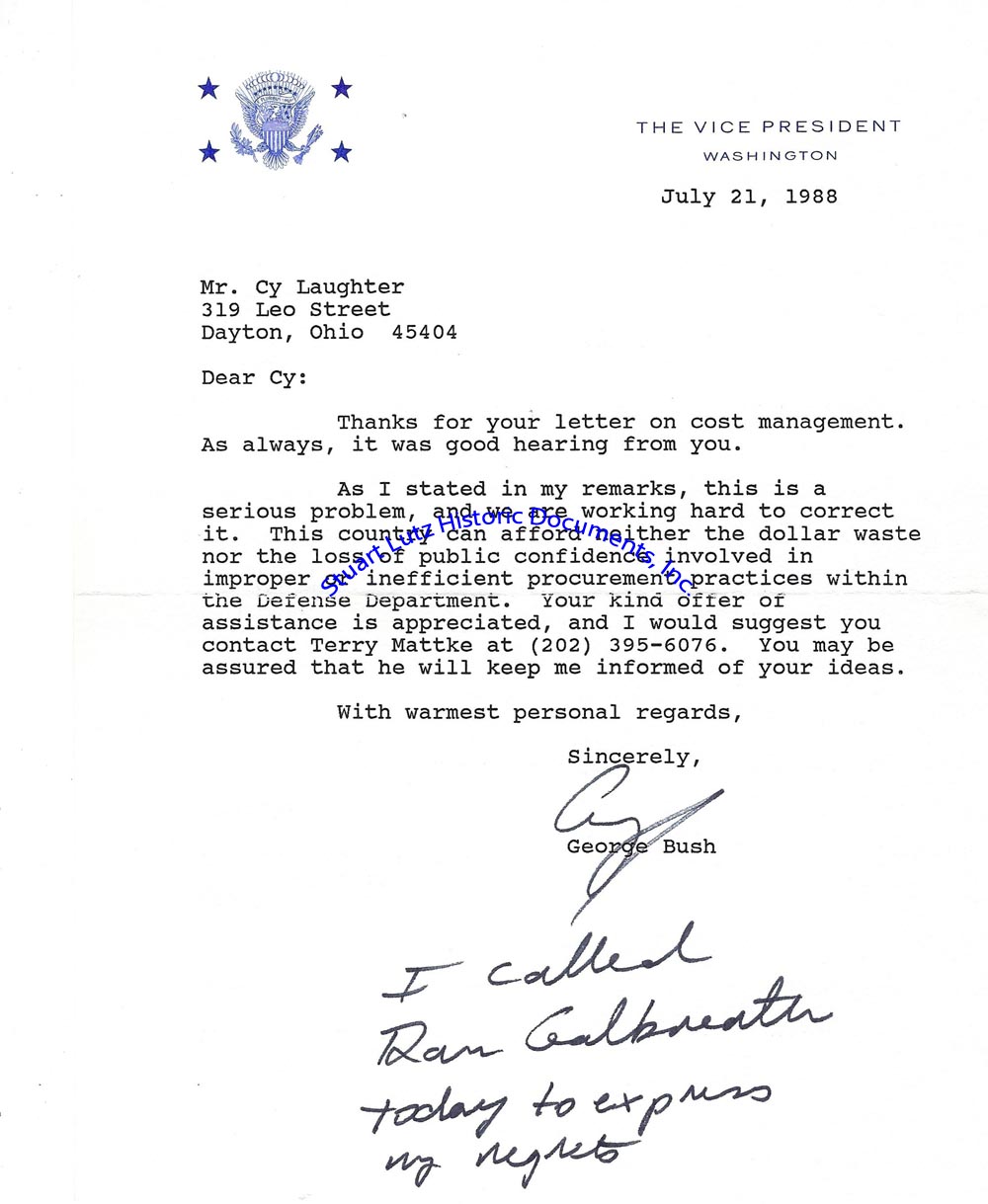| |
A SENATE DOCUMENT HONORING A RABBI WHO GAVE THE OPENING PRAYER
LYNDON B. JOHNSON (1908-1973). Johnson was the Thirty-Sixth President.
D. 1pg. 8” x 10”. June 13, 1962. Washington. A “Senate of the United States” document with an autopen signature of Vice President Lyndon Johnson. He certified that “the prayer at the opening of the session of the Senate was offered by: Rabbi David Berent, Congregation Beth Jacob, Lewiston, Maine.” The signatures of the Senate Secretary and Chaplain are authentic. The document has light toning and is in very good condition. |
| |
OHIO AND PENNSYLVANIA POLITICIANS REFLECT ON THE STATE OF PENNSYLVANIA POLITICS JUST AFTER THE 1840 ELECTION OF WILLIAM HENRY HARRISON TO THE PRESIDENCY
(PRESIDENTIAL ELECTION OF 1840). ALS. 2pgs. November 18, 1840. Cincinnati, Ohio. An autograph letter signed “J Burnet” by Ohio lawyer and politician Jacob Burnet (1770-1853). It is addressed to James Dunlap of Pittsburg. Burnet replies to Dunlap’s letter stating his concerns about Pennsylvania politics in light of the recent 1840 Presidential election, in which William Henry Harrison defeated Martin Van Buren. Harrison would die only a month into his Presidency. Mentioning a “schism” at one point, Burnet seems to anticipate the national divide that would eventually lead to the American Civil War, although this may have referred to economic issues rather than the question of slavery: “Dear Sir I have received your letter of the 12th inst and read it with interest. The matter it contains…the view you have taken of the state of parties in Penna are highly interesting, and are certainly entitled to serious consideration. The mixture of parties, of which you speak, as having taken place in the late struggle, can not, as you observe…There is reason to fear, that when the cause which…the union, the fruits of which we have just gathered, shall warn so often at, the repelling principle…will throw the parts from each other, as far as they win, before the conflict began, unless something can be done, to effect such a permanent combination, as you refer to. I confess I now have understood the theory of party…as they have existed in, and have agitated your state, or the principles on which they have been found, or by which they are…I can however easily…schism, may be the result of such an injudicious course on the part of the…you are anxious to prevent. It would give mow me great pleasure to be instrumental in preventing the wit you depict so strikingly, were it in my power. I was known unequal to the task, because I have no claims to the confidence of the General, beyond those of his friends generally, not because in addition to this, I could not point him to the parties, or the persons, as to whom he ought to be on his guard. A frank communication from a confidential friend in Penna, who understands the whole subject, would receive the attention it deserves. An intelligent Penna…can communicate the specific information necessary to show him the danger and the mode of avoiding it. Advice or caution in a care like this, to have its proper influence, should come from the power of information. Your views on the subject of claims, founded on services, rendered in the late political contest, are precisely those I entertain, and express on all occasions, and I have reason to believe, the General looks on the subject though the same medium, and views it in the same light. If our motives have been patriotic, our labor has been done for the country, and success is our only legitimate reward. If they have been personal they are not praiseworthy, and ought not to be rewarded. I am confident that president elect views the matter in that light, and that he does not feel personal obligations to any body, on account of no part taken in the contest. If this be not so, I have very much misunderstood his character. Yours very respectfully J Burnet”. The letter is in very good condition with a loss to the back page that does not affect any content. A reminder of the eternal contention and controversy in American political elections. |
| |
THE PROOFS OF THE CONTROVERSIAL WARREN HARDING BIOGRAPHY, THE SHADOW OF BLOOMING GROVE
WARREN G. HARDING (1865-1923). Harding was the Twenty-Ninth President.
Proof copies. 1968. No place. The proof copies of Francis Russell’s 1968 biography The Shadow Of Blooming Grove. The controversial biography is best-remembered for a lawsuit brought by the Harding family against Russell. He discovered letters between Harding and his mistress, Carrie Phillips, and Russell intended to publish excerpts of the correspondence. The Harding family successfully sued to block their disclosure, and it boosted the pre-publication publicity for the tome. The proofs are in two bound booklets and housed in a custom-made green box. There is at least one handwritten correction and the pages have the usual wear to the edges. Perfect for the Warren Harding completist! |
| |
A GEORGE H. W. BUSH LETTER SIGNED AS VICE PRESIDENT
GEORGE H. W. BUSH (1924-2018). Bush was the Forty-First President.
TLS. 1pg. July 21, 1988. Washington. A typed letter with autograph postscript signed “Geo” as Vice President. On his official Vice President letterhead, Bush wrote to a Cy Laughter of Ohio about inefficient defense spending: “Dear Cy: Thanks for your letter on cost management. As always, it was good hearing from you. As I stated in my remarks, this is a serious problem, and we are working hard to correct it. This country can afford neither the dollar waste nor the loss of public confidence involved in improper or inefficient procurement practices within the Defense Department. Your kind offer of assistance is appreciated, and I would suggest you contact Terry Mattke at (202) 395-6076. You may be assured that he will keep me informed of your ideas. With warmest personal regards, Sincerely Geo I called Dan Galbreath today to express my regrets.” Daniel Galbreath was a successful Ohio businessman. The letter is in fine condition. |
